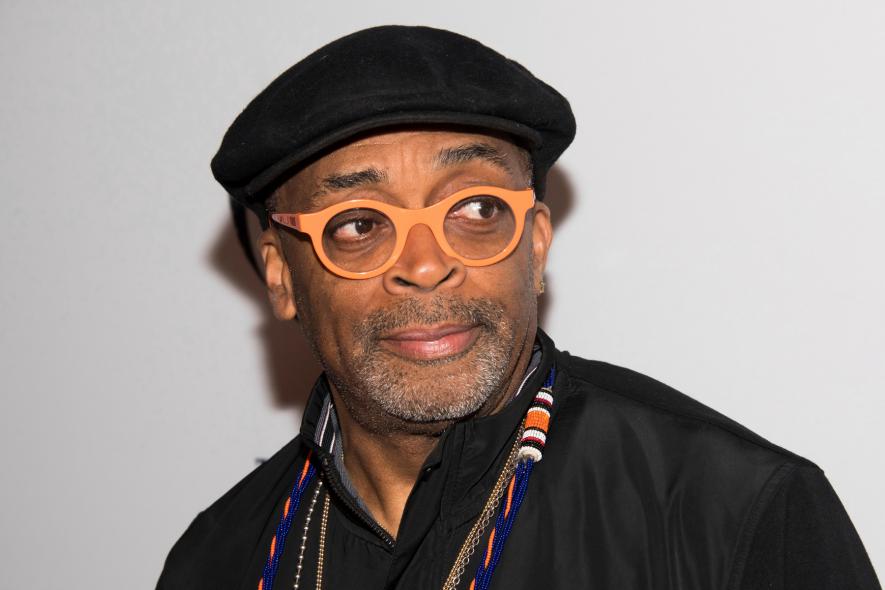Spike Lee’s Anti-Racist Film is Racist to the Vietnamese

Spike Lee
Imagine a film where a White character keeps using the N-word in his encounters with Black people. Imagine that his conversations with Black characters on screen is characterised by hatred, antagonism and suspicion. But imagine that the film treats this character with tenderness, explains away his racism as a result of PTSD, what do you think the film will be called? Racist? Yes, you are right. However, should this character be Black, and if he keeps using the highly offensive racist term “gook” in his encounter with Vietnamese people, and when the film treats him tenderly, explains his racism as a result of his PTSD, what do you think the film will be called? Contrary to normal expectations, but in the spirit of our polarised times, Spike Lee’s Da 5 Bloods has been near-universally celebrated as an anti-racist film.
Granted, Da 5 Bloods breaks new grounds in its foregrounding of Black soldiers in the Vietnam War. Usual American movies on Vietnam focus on White protagonists, their traumas, their inner conflicts, their moral responses to the war, while the Vietnamese figure marginally, as brutal villains, caricatures or victims—though they were the victors of the war. Whether they were films that supported American aggression on Vietnam like The Green Berets (1968) and the first two Rambos (1982, 1985) or films that were critical of the war like Apocalype Now (1979) and Full Metal Jacket (1987), they were firmly centred on the journey of White characters. Da 5 Bloods is different in the sense that it is centred on the journey of Black characters, their traumas from the Vietnam War, their inner conflicts, their moral responses to war—while the Vietnamese figure as brutal villains, caricatures and victims!
Da 5 Bloods is the story of five African-American soldiers who form a closely bonded group called the Bloods. They are incensed by anti-Black racism in America and decide to do something to boost the cause of the African-American struggle. Their leader, Norman, comes across a stash of gold bars in a crashed CIA plane and the group decides to use it for African-American empowerment. However, Norman is killed in combat and the location is bombed by the Americans. The remaining four, Paul, Otis, Eddie and Melvin, survive and return to the United States. After several years, the four return to Vietnam to retrieve the gold and also Norman’s remains in the process.
Paul, a Trump supporting African-American, is constantly suspicious of all Vietnamese and often refers to them in racist ways. However, his PTSD and guilt—it is revealed that he had shot Norman by accident—are given as excuses for his behaviour. Otis has a “girlfriend” in Vietnam, Tien, who was impregnated and abandoned by him and has ever since been faithfully waiting for him with their daughter. As the four go in search of the gold, they are joined by Paul’s son, and the group cross both natural and human hurdles to reach their treasure.
Though Lee shows a modern, developed Vietnam, the Vietnamese as such are shown in usual Hollywood stereotypes. There is Tien, the native who sleeps with the enemy, Vinh, the tour guide-cum-collaborator who patiently puts up with all of Paul’s racist abuse, there are poor Vietnamese hawkers who try to extort the American tourists, and there is a villainous Vietnamese militia working with a shady French guy who are also after the gold. The only good Vietnamese are those who have a positive relationship with the Americans.
One of the nameless villainous Vietnamese tells the Americans that the gold belongs to Vietnam. In all fairness, one would think that there is nothing wrong in this. After being responsible for the deaths of 2 million Vietnamese, leaving several hundred thousand maimed for life, wantonly ruining their ecology and attempting to choke to death their economy, the Americans have not yet uttered an official word of apology to Vietnam. On the contrary, the American culture industry still continues to portray Americans as victims of a war that they wantonly initiated. Lee’s film is rare because it acknowledges that the war was unnecessary and recognises Vietnam as the winners of the war. But to allow the Vietnamese to win again, especially to win reparations, would be too much. Thus, the Vietnamese who try to take the gold are all killed. With the retrieved gold, the remaining survivors divide the money among themselves. And interestingly, a part of it goes to finance the Black Lives Matter movement in America. Not many people found it problematic that the protagonists fund Black Lives Matter after killing Vietnamese lives.
White critics have mostly uncritically celebrated the film. Of course, anything else would have been called racist. A rare and bold voice was that of the Vietnamese writer Viet Thanh Nguyen who criticised the film for holding “American imperialist views”, noted its “liberal condescension” and highlighted its “rescue narrative with Black saviours instead of white ones.” But given the popular approval of the demand for greater recognition of Black talent in America, one should not be surprised should Da 5 Bloods win an Oscar. Powerful American corporates, universities, media houses have already pledged their support for Black voices and the film industry cannot be far behind.
The Black Lives Matter protests, which have been triggered by the murder of George Floyd, a 46-year-old Black man, by police officers in Minneapolis, United States, agitated not just against police violence on African-Americans but also several other forms of direct and indirect racism that hampered the growth of the Black communities. The protests quickly spread to other Western countries. Fulbright-Nehru scholar Kalaiyarasan A draws attention to the “deepening structural inequality” between Blacks and Whites in America and highlights several socio-economic factors that maintain the racial divide. He argues, “Historical exclusion and persistent discrimination have only built cumulative disadvantages for African Americans.”
Many protesters have drawn attention to such structural inequalities and have called for systemic changes. Yet, there are apprehensions that changes will not be systemic, but cosmetic. Indeed, the release of Da 5 Bloods on Netflix did add to the diversity of Netflix’s contents, but more importantly, it contributed to its profit. How much of these go to the poor? Thabi Myeni criticises the outreach by “white-owned establishments” towards the Black Lives Matter protests for being merely performative and not substantive and calls for a “global substantive change”.
But apart from pacification of anti-racism by the American political establishment or the appropriation by the cultural establishment, there is also another danger—weaponisation of anti-racism. Black Lives Matter is indeed anti-establishment at the moment, but America has shown itself to be resilient to such protests in the past. Just consider the feminist movement in America. Despite all their limitations, the American feminists did contribute much to global feminist debates on theory and practice. But they were largely caught clueless when the slogan of women’s rights was invoked by the American state to justify the invasion of Afghanistan. Worse, some ended up justifying it. If anything, the invasion made the fight for the Afghani women’s rights a lot worse and the Americans are now trying to broker a deal with the bad guys they aimed to displace—the Taliban.
Can one not legitimately worry that the slogan of racial diversity might also be used to justify American aggressions in the future? A multiracial America could claim superiority over the largely mono-racial North Korea or China and try to legitimise acts of military aggression against these countries. America could also oppose Russia on the basis that it is a ‘White supremacist country’ and launch a war against it in the name of racial diversity.
The real paranoia for America has never been its racial or religious minorities, whom it inevitably accommodates. It has always been Russia, which it has, for over a century, seen as its greatest strategic geo-political threat. Already, Russia has been blamed for fomenting extremism in the ongoing protests in America. And no, it was not a Trump acolyte or a White conspiracy theorist who made this accusation, but Susan Rice, former National Security Advisor to Obama and a Black woman herself. Among the Democrats, one can often find anti-racist sentiments and anti-Russian sentiments overlapping. How does one be sure that these discourses will not translate to future actions?
This might seem like reading too much, but I doubt if American feminists might have imagined that their slogans would be used by the American establishment to justify its military interventions. America has tried to impose “feminism” in Afghanistan, “democracy” in Iraq, “liberty” in Chile and “peace” in Guatemala by direct or proxy war. There is no reason not to think it will not try to impose “racial diversity” through war on some enemy country in the near future. When it does, it will need to use weapons in its cultural arsenal to validate itself. Spike Lee has supplied one through Da 5 Bloods.
Coming back to portrayals of the Vietnam war in Hollywood, I do not think that the American film industry can ever truly produce a film from the point-of-view of the Vietnamese. Because the Vietnamese struggle was not about religion or nationalism or identity—these the American film industry understands and appropriates. It was about building socialism. At a time when liberal inanities on identity are aplenty, appearing as resistance but only contributing to Western hegemony, it is worth revisiting the global traditions of socialism in practice, theory and art. Especially from countries like Vietnam.
The author is assistant professor of political science at the Centre for Studies in Social Sciences, Calcutta (CSSSC). He is working on the political thought of Periyar EV Ramasamy. The views are personal.
Get the latest reports & analysis with people's perspective on Protests, movements & deep analytical videos, discussions of the current affairs in your Telegram app. Subscribe to NewsClick's Telegram channel & get Real-Time updates on stories, as they get published on our website.
























